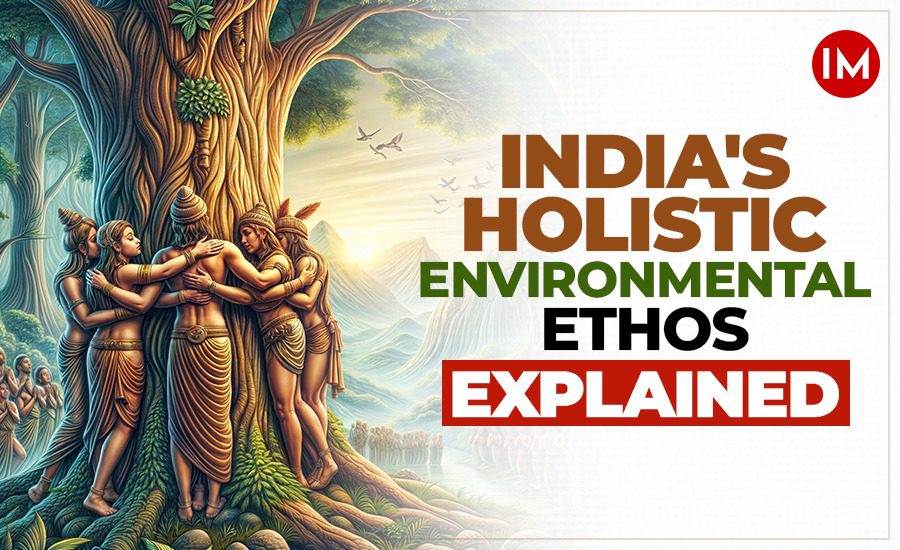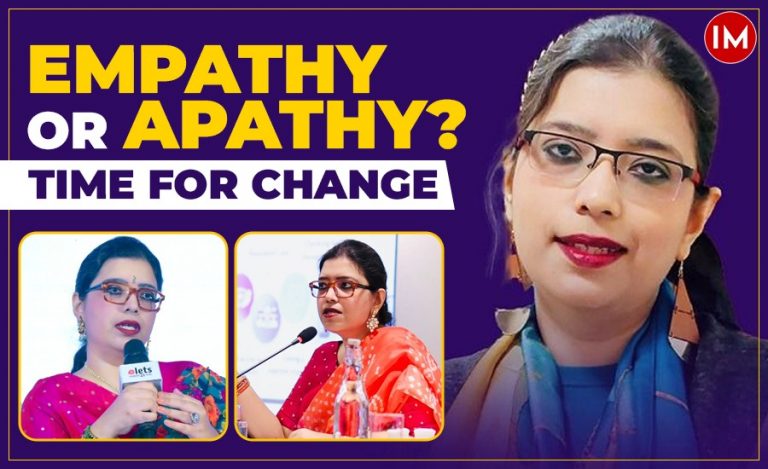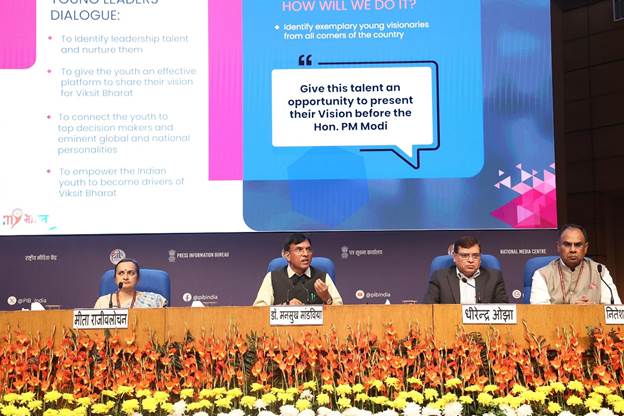The environment is an interaction between the inner and the outer. The environmental ethos of any culture underlies its core values regarding ecology, the planet, and the environment. It reflects how a civilization perceives and interacts with its natural surroundings. In today’s global context, pressing issues like pollution, carbon footprints, global warming, and the climate crisis demand urgent attention and collective action. Pollution, whether in the form of air, water, or soil pollution, has emerged as a significant global challenge, necessitating comprehensive solutions. The environmental ethos not only identifies the root causes of the climate crisis but also offers potential solutions at individual, local, and societal levels to address environmental degradation effectively.
This environmental philosophy provides a holistic framework for societies to safeguard nature and its various ecosystems, including plant and animal life, rivers, lakes, and water bodies.
India, as one of the world’s oldest and most enduring civilizations, can boast of a rich environmental ethos deeply rooted in its cultural and religious beliefs, particularly those derived from Hinduism. These values have evolved over years of learning, observations, experiments, and experiences since timelessness, known as Sanatan culture.
These values, assimilated into everyday life, transcend mere philosophical ideals to become existential truths. India’s environmental principles can serve as guiding lights for a world grappling with climate crises. The origins of India’s environmental values can be traced back to ancient intellectual traditions, including the Vedic, Upanishadic, Jain, and Buddhist periods.
Core to Indian environmental philosophy is the belief that humanity is intricately connected to the planet. Man is a microcosm within the macrocosm of the Earth, highlighting the interdependence between human existence and planetary well-being. Unlike Western culture, the Earth is revered as a nurturing mother, providing boundless natural resources. This sentiment is encapsulated in the ancient Hindu adage, “The Earth is our mother, and we are all her children.” It is never nature vs. man, but man in nature.
Fundamental to Indian thought is the concept of the Pancha Mahabhutas, or the five basic elements—space, air, water, fire, and earth—that constitute the universe. The balance of these elements is crucial for maintaining ecological harmony, and any disruption, such as pollution, signifies an imbalance. Indian culture reveres Mother Earth in various forms, from plants and trees to rivers and mountains, considering them sacred entities.
The core Environmental values of the Indian Culture are:
- Man is not an atomic being separate from the planet. The planet exists in him, and he exists in the environment.
- The actions of man are not independent, they have a direct bearing on the environment.
- Nature is not a resource but an end in itself. Natural resources and nature cannot be exploited for the selfish interest of man.
– No generation has a right to exploit the resources up to itself. It must take care of future generations.
– Economic activities cannot take place on their own; they have to conform to ecology. The economy must lead to ecology, reverse cannot be the case.
– There is no race of survival of the fittest. It is mutual co-existence. Rather, man-birds-animals-trees can and should co-exist in perfect harmony.
Unlike anthropocentric ideologies, India’s environmental ethos embodies principles of mutual coexistence, peace, and interdependence among all beings on the planet. It emphasizes the responsible consumption of natural resources, rejecting mindless exploitation for individual gain. The ethos upholds the sanctity of all life forms, advocating for non-violence and reverence towards animals, plants, and microorganisms.
India’s environmental ethos also underscores the importance of sustainable living and minimalism, promoting non-possession beyond one’s needs to limit resource consumption and waste generation. In this worldview, man is not the owner but the trustee of the Earth’s resources, tasked with preserving them for future generations.
By embracing India’s environmental ethos, the global community can address pressing environmental challenges such as river pollution, global warming, wildlife extinction, and resource depletion. India offers invaluable lessons in living in harmony with nature, paving the way for a more sustainable and equitable world.
| The author, Geetanjali Mehra is an interior designer. She has created more than 450 mini-forests and 700 vertical gardens with waste plastic bottles along with her husband. She has been writing on Indian culture. Views expressed are personal. |



















